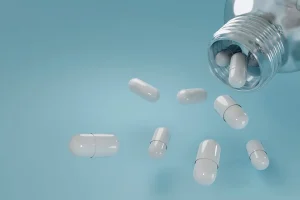Pharmaceutical Waste Explained
Pharmaceutical waste refers to any expired, unused, contaminated, or unwanted medication or pharmaceutical products. These can be generated by healthcare facilities, pharmacies, veterinary clinics, households, and other sources. Proper disposal of these materials is crucial to prevent environmental contamination, potential abuse or misuse, and to comply with regulations aimed at protecting public health and safety.

Types of pharmaceutical waste:
Hazardous Pharmaceutical Waste: This includes pharmaceuticals that exhibit characteristics of hazardous waste, such as ignitability, corrosivity, reactivity, or toxicity. Examples may include certain chemotherapy drugs, certain antibiotics, and some medications containing heavy metals.
Non-Hazardous Pharmaceutical Waste: This category includes expired, unused, or contaminated medications that do not meet criteria for hazardous waste but still require proper disposal to prevent environmental harm or public health risks.
Controlled Substances: These are medications regulated by the Drug Enforcement Administration (DEA) due to their potential for abuse or addiction. Proper disposal of controlled substances is especially critical to prevent diversion and misuse.
Over-the-Counter (OTC) Medications: These are non-prescription medications like pain relievers, cold remedies, and vitamins. These may become waste due to expiration, contamination, or unused quantities.
Pharmaceutical Packaging: This includes empty medication containers, blister packs, vials, and packaging materials that may contain traces of pharmaceutical residues.
Proper Disposal Methods
Proper disposal methods for pharmaceutical waste typically involve segregation, secure storage, and disposal according to regulatory guidelines. Healthcare facilities, pharmacies, and other generators of this kind of waste must follow federal, state, and local regulations such as those outlined by the Environmental Protection Agency (EPA), DEA, and state environmental agencies. Common disposal methods include incineration, chemical treatment, reverse distribution programs for unused medications, and authorized collection events for households.
It’s important to note that improper disposal of pharmaceutical waste, such as flushing medications down the toilet or throwing them in the regular trash, can lead to environmental contamination, water pollution, and potential risks to human and animal health. Proper handling and disposal of waste are essential responsibilities for healthcare providers, pharmacists, consumers, and waste management professionals alike.
To learn more about medical waste disposal services, call the team at Medical Waste Pros today (888) 755-6370. Get free, no-obligation quotes on solutions for your project.







